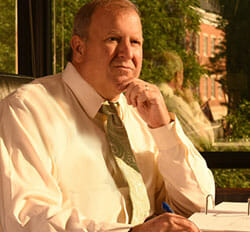National Doctor’s Day
March 24th, 2017 by Attorney Roger Weinberg
March 30th is designated as National Doctor’s Day, and it’s meant to bring attention to the role physicians play in our lives. They’re especially important to those living in Maryland’s nursing homes and assisted living facilities who need more attention because of their health conditions and age.
There were about 209,000 practicing primary care physicians in the U.S. in 2010, according to research by the Agency for Healthcare Research and Quality. Primary care physicians are considered those working as family physicians and general practitioners, general internists, general pediatricians and geriatricians. Of the 624,434 physicians in the country who spend most of their time in direct patient care, slightly less than one-third are specialists in primary care.
Every nursing home is required to have a medical director. Often, a nursing home also assigns a doctor to care for residents. Most work part-time and are contracted to do the work. One type of specialist is a geriatrician who works in a sub-specialty of internal medicine. It’s one of the few medical specialties in the country whose numbers are shrinking while the need for their services increases, ranking at the bottom of the specialties that internal medicine residents choose to pursue, according to the New York Times.
A geriatrician is a physician who is certified in internal or family medicine and who has additional training in the care of older adults. They provide clinical care and are able to navigate the many psychological and social problems that often plague our aging population.
Today there are about 7,000 geriatricians practicing in the country. The American Geriatrics Society estimates that to meet the demand of our future, older population, we will need at least 6,250 additional geriatricians between now and 2030, or about 450 more a year than the current rate. One reason for the lack of popularity is that the specialty is one of the lowest paying (due to low Medicare and Medicaid reimbursements) at a time when new doctors could have hundreds of thousands of dollars in student loans.
The lack of qualified doctors to care for nursing home residents will be an increasing issue as more of us get older and enter nursing homes. Right now, whether the doctor specializes in geriatrics or not, physicians treating nursing home residents are ethically bound to do no harm — but all too often that is what happens. A diagnosis may be missed, a condition may progress; even if the right diagnosis is made, treatment may be performed negligently, resulting in serious harm or death to the resident.
Negligence (or medical malpractice) by a health care provider, including that by a nursing home physician, can be shown by establishing,
- There was a duty of care to the patient, a standard that the doctor needed to meet.
- By the doctor’s actions or failure to act, that standard of care was breached.
- That breach was, in fact and under the law, the cause of harm to the resident.
- That harm caused damages (such as pain, suffering, physical limitations, death or economic harm) for which compensation can be awarded.
A medical malpractice case may be difficult to prove and requires the use of medical experts. If you believe that you or a loved one has been the victim of medical malpractice, this is not the type of case you should handle by yourself.
We can help you deal with medical malpractice when it happens and seek compensation for the harm done. At the Law Offices of Roger S. Weinberg, you’ll find compassionate support and experienced advocates to help your family through the tough times. Call 410-825-3161 today to schedule a free consultation.


 Roger Weinberg is a skilled and experienced attorney who has pioneered the legal field of representing Nursing Home, Assisted Living, and Developmental Disability victims and their families who have experienced abuse, neglect and wrongful death. He is a leader in this field and teaches other lawyers, students and medical personnel about the laws impacting such cases. [
Roger Weinberg is a skilled and experienced attorney who has pioneered the legal field of representing Nursing Home, Assisted Living, and Developmental Disability victims and their families who have experienced abuse, neglect and wrongful death. He is a leader in this field and teaches other lawyers, students and medical personnel about the laws impacting such cases. [ 



